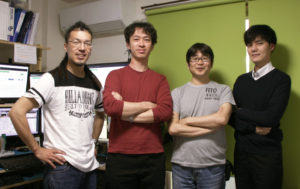Fully Autonomous Nissan Leaf May Be Closer Than You Think

According to any futuristic sci-fi movie from the 1970s, by 2013 we should have been driving flying cars. Unfortunately, while there have been some steps in that direction, no automaker is ready to shake things up quite that much just yet. Autonomous cars, on the other hand, now that’s a goal to shoot for. And if Nissan CEO Carlos Ghosn has anything to say about it, we may be driving hands-free sooner than you think.
It was just one year ago that Nissan impressed us with their first-ever self-parking car at Japan’s annual Combined Exhibition of Advanced Technologies show (CEATEC for short). Now, one year later, they’re demonstrating their first ever Autonomous Driving Nissan Leaf prototype. They’ve allowed everyone from journalists to competing CEO Akio Toyoda to go for a ride, and reactions have been glowing all around.
After her test drive, Li Hui, a head producer for Pheonix TV out of Hong Kong, confidently stated that the technology would be wholeheartedly adapted by Chinese drivers if it were available right now. She felt that women in particular would benefit from autonomous driving, as it would free up the many hours spent commuting each week for other things. Imagine being able to eat breakfast, put on makeup, and otherwise prepare for the day on your way to work. And who wouldn’t want to get some extra sleep in on the way to work as well? Not only would you make better use of your time, you’d be saving money on fuel because it’s an EV, and you’d be safer because the car drives itself perfectly.
Obviously, a fully autonomous vehicle is one of those things you have to see to believe. So, check out the video below and see for yourself:
For our more technologically inclined to readers, the Nissan Leaf drives itself through the use of five lasers and five cameras mounted around the car’s exterior. The cameras and lasers work together to direct the car safely around a track. In the video above, you’ll see the Autonomous Driving Nissan Leaf stop at stop signs, drive around a stalled car, yield for other human-operated vehicles, and smoothly glide through u-turns.
In another video, CEO Carlos Ghosn gets behind the wheel for himself and discusses what this debut means for Nissan. He praises his team of engineers for the enormous advancements they’ve made in just one year, but at the same time he acknowledges that the success of this prototype only serves to put more pressure on Nissan. He claims that they will have a commercially available autonomous vehicle by 2020, “at the latest.” That sounds like a recipe for more long nights in the lab for the geeks. Good job the car will be able to drive them home at the end of all of that.
Nissan has already worked out an agreement with the Japanese government to begin testing semi-autonomous vehicles on real roads with real people. According to their tests, the AD Leaf shows better reaction times than any human driver.
Toru Futami, Nissan’s head of IT and ITS Development, says that their end-goal is to have a system that predicts and reacts to every conceivable circumstance, from a child running into the road to another car running a red light. Perfect safety and perfect convenience are the joint objectives, and if the autonomous Nissan Leaf at CEATEC is any indication, both goals will be met sooner rather than later.


